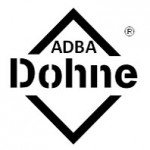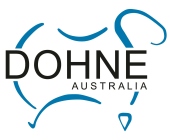Scope exists for global Dohne evaluation
July 25, 2016 – by Kim Woods Outcross Media
A global Dohne evaluation system with common linkages will enhance the export of Australian genetics around the world.
Sheep Genetics manager Hamish Chandler said there was more scope for global collaboration in the Dohne gene pool.
A guest speaker at the inaugural Global Dohne Conference at Dubbo on July 21-22, Mr Chandler said there were already several international flocks enrolled in the Sheep Genetics Dohne evaluation.
The conference was attended by breeders from South Africa, Uruguay, Chile, New Zealand, United States and Australia.
“If there are genes in common between different countries, and we are selling sires or semen to those countries, there is potential benefit in running a combined genetic evaluation,’’ he said.
Mr Chandler said identifying genetic linkages between countries was the key.
“A global genetic evaluation does really have the potential to allow us to identify a lot more variation around the world in the Dohne gene pool,’’ he said.
“We can start exploiting that variation to make progress for the traits important to us and do that with much better accuracy.
“By moving to a combined analysis, there is the ability to make faster rates of gain.’’
Options include international flocks enrolling in the analysis by direct subscription to the Australian Dohne Breeders Association, or a breed association/society aligned with the ADBA collating data and making a submission.
Mr Chandler said it was possible to exchange data with international Dohne evaluations.
“There is a Trans-Tasman exchange of data sets between Australia and New Zealand for Corriedales, Coopworths and Poll Dorsets,’’ he said.
“Any animals imported from one country to the other have a good starting point, with breeding values calculated from information on themselves and relatives already in that data base.
“They are all options but they do need to be tested on a case by case basis.’’
Mr Chandler told conference delegates the Dohne breed in Australia was making sound rates of genetic progress.
He urged breeders to contribute more records on adult weights, fertility and reproduction, including number of lambs weaned.
Mr Chandler said growth, muscle and fleece weight had increased over the last 10 years, while fat depth and micron remained stable.
The top 20 per cent of flocks average 135 points on the Dohne index, with some flocks gaining up to 11 index points a year.
“The rate of progress is driven by selection intensity, accuracy, generational interval and variation,’’ Mr Chandler said.

Sheep Genetics manager Hamish Chandler believes there is more scope for global collaboration in the Dohne gene pool.












